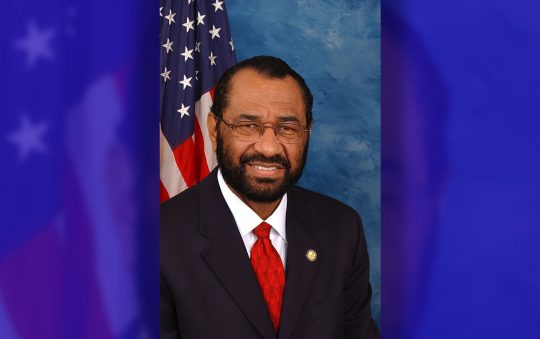
During a Senate Select Committee on Intelligence hearinG, U.S. Senator Kamala D. Harris probed Attorney General Jeff Sessions on his evasive answers to questions regarding his involvement with Russia, including his meetings and communications with Russian officials as a top Trump campaign surrogate.
Harris pressed Sessions on the need to produce relevant documents to support his repeatedly inconclusive recollection of events. Harris asked, “[Y]ou have several times this afternoon prefaced your responses by saying ‘to the best of your recollection’. Just on the first page of your three pages of written testimony you wrote, ‘nor do I recall’, ‘do not have recollection,’ ‘do not remember it.’ So my question is, for any of your testimony today, did you refresh your memory with any written documents, be they your calendar, written correspondence, e-mails, notes of any sort?” Sessions failed to commit to provide notes he maintained.
Throughout the hearing, Sessions provided evasive responses and often cited a “long-standing” Department of Justice policy that prohibited him from discussing his private communications with President Trump. When pressed by Senator Harris to confirm whether or not this policy was in writing, Sessions was unable to say:
Harris: And you referred to a long standing DOJ policy, can you tell us what policy it is you’re talking about?
Sessions: Well, I think most cabinet people as the witnesses you had before you earlier, those individuals declined to comment because we’re all — about conversations with the President — because that’s a long standing policy —
Harris: Sir, I’m just asking you about the DOJ policy you referred to.
Sessions: — that goes beyond just the Attorney General.
Harris: Is that policy in writing somewhere?
Sessions: I think so.
A full transcript of Harris’ questioning can be found below:
Harris: Attorney General Sessions, you have several times this afternoon prefaced your responses by saying, “to the best of your recollection.” Just on the first page of your three pages of written testimony you wrote, “nor do I recall”, “do not have recollection,” “do not remember it.” So my question is, for any of your testimony today, did you refresh your memory with any written documents, be they your calendar, written correspondence, e-mails, notes of any sort?
Sessions: I attempted to refresh my recollection but so much of this is in a wholesale campaign of extraordinary nature. You’re moving so fast that you don’t keep notes. You meet people. I didn’t keep notes of my conversation with the Russian Ambassador at the Republican Convention.
Harris: Sir, I’d like to just talk about what you did keep notes of —
Sessions: I’m just saying, I didn’t keep notes on most of the things. There is nothing for me –
Harris: Will you provide this committee with the notes that you did you maintain?
Sessions: As appropriate, I will supply the committee with documents.
Harris: Can you please tell me what you mean when you say “appropriate”?
Sessions: I would have to consult with lawyers in the Department who know the proper procedure to — before disclosing documents that are held within the Department of Justice —
Harris: Attorney General Sessions –
Sessions: — and I’m not able to make that opinion today.
Harris: Sir, I am sure you prepared for this hearing today and most of the questions that have been presented to you were predictable. So my question to you is: did you then review with the lawyers of your Department, if you as the top lawyer are unaware, what the law is regarding what you can share with us and what you cannot share with us, what is privileged and what is not privileged?
Sessions: We discussed the basic parameters of testimony. Frankly, I have not discussed documentary disclosure rules.
Harris: Will you make a commitment to this committee that you will share any written correspondence? Be they your calendars, records, notes, e-mails, or anything that has been reduced at any point in time in writing to this committee, where legally you actually have an obligation to do so?
Sessions: I’ll commit to reviewing the rules of the Department and, as — and when that issue is raised, to respond appropriately.
Harris: Did you have any communications with Russian officials for any reason during the campaign that have not been disclosed in public or to this committee?
Sessions: I don’t recall it. But I have to tell you, I cannot testify to what was said as we were standing at the Republican Convention before the podium where I spoke. I’m just –
Harris: My question is only as it relates to your knowledge –
Sessions: — I don’t have a detailed memory of that –
Harris: Ok, as it relates to your knowledge –
Sessions: To the best of my —
Harris: Did you have any communication with any Russian businessmen or any Russian nationals?
Sessions: I don’t believe I had any conversation with Russian businessmen or Russian nationals.
Harris: Are you aware of any communications —
Sessions: A lot of people were at the convention. It’s conceivable that somebody –
Harris: Sir, sir, I have just a few more.
Sessions: Will you let me qualify? If I don’t qualify, you’ll accuse me of lying. So I need to be correct as best I can –
Harris: I do want you to be honest.
Sessions: — I’m not able to be rushed this fast. It makes me nervous.
Harris: Are you aware of any communications with other Trump campaign officials and associates that they had with Russian officials or any Russian nationals?
Sessions: I don’t recall that —
Harris: And are you aware –
Sessions: — at this moment.
Harris: Are you aware of any communications with any Trump officials or did you have any communications with any officials about Russia or Russian interests in the United States before January 20th?
Sessions: No. I may have had some conversations and I think I did, with the general strategic concept of the possibility of whether or not Russia and the United States could get on a more harmonious relationship and move off the hostility. The Soviet Union did in fact collapse.
Harris: Thank you, sir.

Sessions: It’s really a tragic strategic event that we’re not able to get along —
Harris: Before –
Sessions: — better than we are today.
Harris: Before being sworn in as Attorney General, how did you typically communicate with then-candidate or president-elect Trump?
Sessions: Would you repeat that?
Harris: Before you were sworn in as Attorney General, how did you typically communicate with then-candidate or president-elect Trump?
Sessions: I did not submit memorandum –
Harris: Did you communicate in writing?
Sessions: I did not make formal presentations.
Harris: Did you ever communicate with him in writing?
Sessions: I don’t believe so.
Harris: And you referred to a long standing DOJ policy, can you tell us what policy it is you’re talking about?
Sessions: Well, I think most cabinet people as the witnesses you had before you earlier, those individuals declined to comment because we’re all — about conversations with the President — because that’s a long standing policy —
Harris: Sir, I’m just asking you about the DOJ policy you referred to.
Sessions: — that goes beyond just the Attorney General.
Harris: Is that policy in writing somewhere?
Sessions: I think so.
Harris: So did you not consult it before you came before this committee, knowing we would ask you questions about that?
Sessions: Well, we talked about it. The policy is based –
Harris: Did you ask that it would be shown to you?
Sessions: The policy is based on the principle that the President –
Harris: Sir, I’m not asking about the principle. I’m asking when you knew that you would be asked these questions –
Sessions: Well I’m not able to answer the question.
Harris: — and you rely on that policy, did you not ask your staff to show you the policy that would be the basis for refusing to answer the majority of the questions that have been asked of you?
McCain: Chairman, the witness should be allowed to answer the question.
Burr: Senators will allow the Chair to control the hearing. Senator Harris, let him answer.
Harris: Please do. Thank you.
Sessions: We talked about it. And we talked about the real principle that’s at stake is one that I have some appreciation for, having spent fifteen years in the Department of Justice, twelve as United States Attorney. And that principle is that the Constitution provides the head of the executive branch certain privileges. And that members — one of them is confidentiality of communications. And it is improper for agents of any of the Department — of any departments in the executive branch, to waive that privilege without a clear approval of the President.
Harris: Mr. Chairman, I have asked –
Sessions: And that’s the situation –
Harris: Mr. Sessions for a yes or no. Did you ask your staff –
Sessions: Well the answer is yes, I consulted.
Harris: — to see the policy? Did you asked your staff to see the policy?
Burr: The Senator’s time has expired.
Harris: Apparently not.






